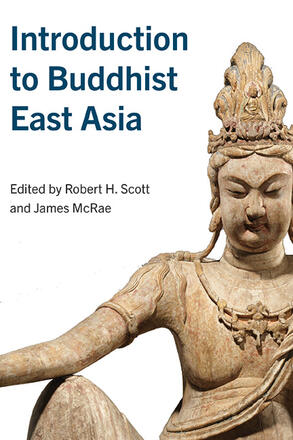
Introduction to Buddhist East Asia
Alternative formats available from:
Offers a variety of pedagogical and theoretical essays designed to assist professors in introducing undergraduate students to Buddhism in China, Korea, and Japan.
Description
This anthology provides an accessible introduction to East Asian Buddhism, focusing specifically on China, Korea, and Japan. It begins with a detailed historical introduction that includes an overview of the development of the various schools of Buddhism in East Asia and traces the transmission of Buddhism from Northwest India to China in the first century CE, and then to Korea and Japan in the fourth and sixth centuries CE. The first part of the book contains five chapters that offer creative pedagogies that can help college professors infuse East Asian Buddhism into their courses. The second part includes six interdisciplinary chapters that explore thematic links between East Asian Buddhism and religious studies, philosophy, film studies, literature, and environmental studies.
Robert H. Scott is Associate Professor of Philosophy at the University of North Georgia. His previous books include The Significance of Indeterminacy: Perspectives from Asian and Continental Philosophy (coedited with Gregory Moss). James McRae is Professor of Philosophy and Religious Studies at Westminster College. His previous books include Japanese Environmental Philosophy (coedited with J. Baird Callicott); Environmental Philosophy in Asian Traditions of Thought (coedited with J. Baird Callicott), also published by SUNY Press; and The Philosophy of Ang Lee (coedited with Robert Arp and Adam Barkman).
Reviews
"This book provides useful pedagogical guidelines and advice for faculty interested in or considering the inclusion of East Asian Buddhism into their courses, as well as essays for undergraduate classrooms on specific topics of interest in Chinese, Korean, and Japanese Buddhist ethics, literature, art, film, and new religious-social movements." — Kin Cheung, Moravian University